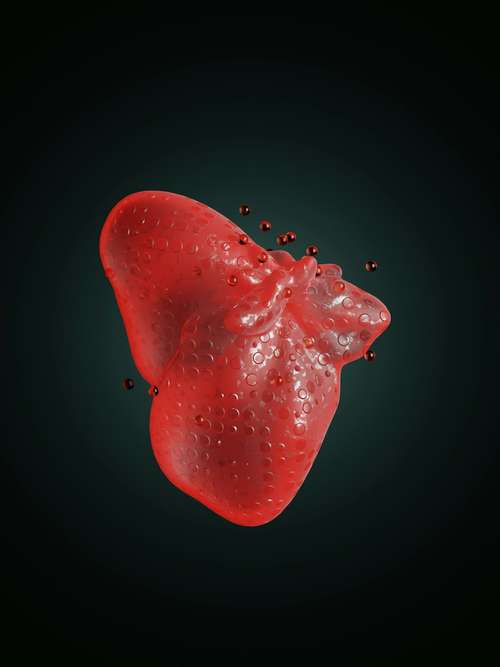Recent research has thrown a spotlight on the connection between our heart and our brain. It turns out that high levels of a particular heart damage biomarker might be more than just a flag for cardiovascular issues – it could also signal an increased risk of developing dementia later on. Many of us wonder how these seemingly different health problems are linked. This article delves into the intricate relationship between elevated troponin levels, a biomarker for heart damage, and dementia risk. Amid the buzz about cardiovascular health, it’s important to understand how even subtle signals from our body can have far-reaching effects.
Understanding the Heart Damage Biomarker
The concept behind a heart damage biomarker might sound a bit clinical, but it's easier to digest than you might think. Essentially, biomarkers like troponin are substances that our body produces when the heart muscle is under stress or damage. Researchers have been tracking these levels for years, noticing that people with high levels often face increased risks of heart disease and other related issues.
In a study involving over 6,000 participants, those with the highest troponin levels had a 38% higher chance of developing dementia later in life. That’s a startling statistic that connects the dots between cardiovascular health and cognitive decline. When we talk about heart damage biomarkers and dementia risk, it becomes clear that the heart’s well-being can influence brain health in profound ways.
This isn’t just about numbers and percentages; it’s a wake-up call for how we approach our overall health. If a simple test can highlight potential issues before symptoms even appear, isn’t it worth paying attention to? Many experts believe that early detection is key when it comes to preventing both heart disease and neurodegenerative diseases like dementia.
The Role of Troponin in Cardiac and Brain Health
Let’s break down the science a bit more. Troponin is a protein found within the heart muscle, and when the heart is damaged, troponin is released into the bloodstream. Over time, persistently high levels of troponin may indicate ongoing heart damage, which could eventually lead to further health complications. So, if you’re tracking your heart health, this biomarker is something to keep an eye on.
For many, the relationship between troponin and dementia risk is a surprising one. However, the connection is becoming harder to ignore. Studies show that the same vascular issues that lead to heart disease can also contribute to the buildup of cognitive decline. Think of it as a ripple effect – an issue in one part of the system can eventually impact the whole body. You might say that a problem with your heart sends tremors across your body, potentially affecting your brain health too.
It’s intriguing to imagine that protecting your heart might also shield your brain from long-term damage. The notion that cardiovascular health plays a critical role in dementia prevention is backed by several studies, and the link is increasingly supported by medical research. When people are proactive about their heart health, they’re also taking steps to mitigate their Alzheimer’s risk and other forms of cognitive impairment.
This is where concepts like early detection and regular monitoring become crucial. If you or someone you know has a history of heart disease, being alert to any signs of cognitive decline might offer valuable time to seek interventions. It’s like catching a small leak before it turns into a flood – addressing the problem early on can save a lot of trouble down the road.
Implications for Dementia Prevention and Cognitive Decline
When it comes to preventing dementia, the emerging research on heart damage biomarkers offers hope. The connection between our cardiovascular system and brain health means that strategies to protect the heart might also serve as a preventive measure for cognitive decline. Over the years, numerous studies have pointed out that managing heart health isn’t just about avoiding heart attacks; it’s also vital for reducing dementia risk.
Imagine your body’s circulatory system as a network of highways. Just as smooth traffic flow is essential for reaching your destination, robust cardiovascular health ensures that your brain gets the oxygen and nutrients it needs. Any obstruction or damage on these highways—marked by elevated biomarkers—could result in serious detours that affect brain function.
This perspective encourages a holistic approach to wellness. Nutrition, exercise, and regular check-ups aren’t just recommendations for a healthy heart – they are also a line of defense against cognitive decline. Many health professionals now urge patients to incorporate lifestyle changes that boost both heart health and brain health. After all, if we nurture one, we are indirectly nurturing the other.
It’s an encouraging sign that more people are starting to see the connection between cardiovascular well-being and dementia prevention. Considering the growing evidence, even small improvements in daily habits—like increasing physical activity or quitting smoking—can lead to significant reductions in risks associated with heart disease and neurodegenerative diseases. By addressing these early warning signs through lifestyle adjustments and medical care, you can potentially reduce your Alzheimer’s risk and enjoy better overall health.
Oftentimes, it’s the little things that matter the most. If you have questions or concerns about your heart's performance or cognitive health, it might be a good idea to discuss them with a healthcare professional. They can guide you through tests and interventions that might include measuring levels of heart damage biomarkers. Knowing that your body communicates subtle hints about underlying issues might just be the extra push you need to adopt a healthier lifestyle.
Putting It All Together
The evidence linking high levels of heart damage biomarkers and dementia risk paints a compelling picture. Not only do these biomarkers provide insight into cardiovascular health, but they also offer clues about potential future cognitive decline. Whether it's the 38% increased risk highlighted in recent studies or the broader implications for overall brain health, one thing is clear: maintaining good heart health is crucial for a sharp and resilient mind.
So, what does this mean for you? It means paying attention to your body is more important than ever. Simple measures like regular exercise, healthy eating, and routine medical check-ups can go a long way in preserving your cardiovascular and cognitive health at the same time. By actively monitoring biomarkers, you’re taking charge of your future and ensuring that both your heart and brain remain strong well into your later years.
This discussion serves as a reminder that our health is a carefully interwoven tapestry. As research unravels new links between heart damage biomarkers and dementia risk, we gain even more incentive to prioritize both heart health and dementia prevention. In the end, being informed and proactive is the best defense against the challenges that come with aging.




